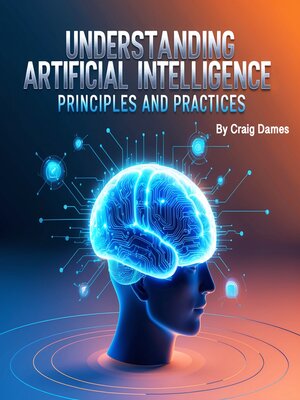Understanding Artificial Intelligence
audiobook (Unabridged) ∣ Principles and Practices
By Craig Dames

Sign up to save your library
With an OverDrive account, you can save your favorite libraries for at-a-glance information about availability. Find out more about OverDrive accounts.
Find this title in Libby, the library reading app by OverDrive.



Search for a digital library with this title
Title found at these libraries:
| Library Name | Distance |
|---|---|
| Loading... |
Artificial Intelligence, commonly known as AI, is one of the most transformative technologies of our time. It refers to the development of computer systems that can perform tasks typically requiring human intelligence. These tasks include problem-solving, learning, decision-making, understanding natural language, and even visual perception. While AI may seem like a recent innovation, its foundations were laid decades ago, and it has evolved through years of research, experimentation, and technological advancement.
The concept of AI dates back to the 1950s, when computer scientists such as Alan Turing and John McCarthy began exploring whether machines could simulate human intelligence. The term "Artificial Intelligence" was first coined in 1956 during the Dartmouth Conference, which is now recognized as the birthplace of AI as a field of study. Early AI systems were rule-based and could only perform specific tasks under limited conditions. However, as computing power increased and data became more accessible, AI models grew more sophisticated and capable.
Today, AI is not just a theoretical concept or something confined to laboratories. It is embedded in our daily lives in subtle and sometimes invisible ways. From voice assistants like Siri and Alexa to recommendation algorithms on streaming platforms and online shopping sites, AI is shaping how we interact with technology. Navigation apps use AI to suggest optimal routes, email services use it to filter spam, and social media platforms rely on AI to personalize content.







